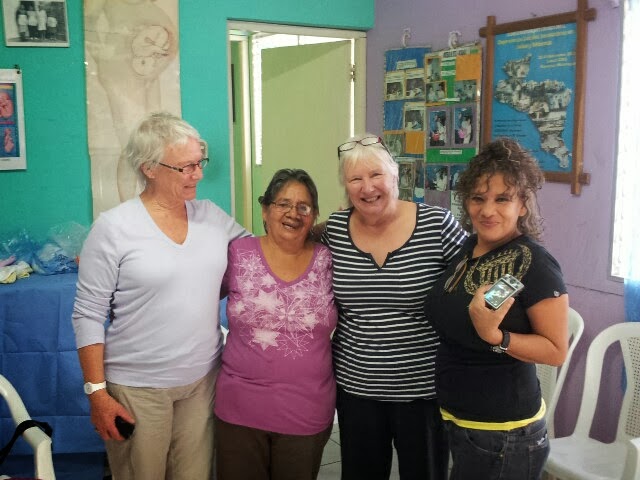It takes time and ingenuity to find Mama Licha's clinic. Esteli is built on a grid pattern and it was either two down and three across and two down or one down three across and three down. Either way we got fairly confused and spent more time than really necessary to reach the clinic. It is actually housed in Mama Licha's house which sits in a nondescript street. There is a bell which is surely far too high for more Nicaraguan women to reach beside an iron grill protecting the front door. We rang. We rang again. We waited. Nothing. Eventually we phoned and Mama Licha picked up the phone immediately. Moments later the door opened and it was instantly clear why no one heard the bell - the house stretches back for a very long way right into the garden where the clinic itself has been built.
Mama Licha is very small but buzzing with energy. She brings us through the house to her demonstration room, throwing out a comment that "There are many placentas buried in the garden out there." This aside is typical of her style, no nonsense, earthy and unembarrassed.
Once sat down, Mama Licha brings out the photos of some of the smiling women and babies who have passed through her clinic. We are then joined by her daughter Nora, a local dance teacher, who seems to be endowed with similar energy.
But there is almost no time for conversation before fourteen women of varying ages and all heavily pregnant, pile into the room. Mama Licha launches into a prenatal meeting. She takes them through the stages of pregnancy, then with the aid of some magnificent
props, including a knitted uterus, a plastic bag and a fabric doll, explains the process of birth and what the women can expect. It is all done with humour and touches of fine acting, designed to relieve the expectant mothers of any embarrassment. The demonstration finished, she asks them how many children each has and where they come from. For quite a few this is a second or even fourth child and most are from the local region, though their journey to Esteli may have taken many arduous hours from remote villages. One has come all the way from Leon just to have Mama Licha as her midwife. And one of them is only fourteen, nervously expecting her first child, a mere child herself. No one asks about fathers but for this young girl, the question could have had a troublesome answer.
We finish our visit by handing out the clothing we've brought with us, including the matinee jackets hand knitted in Wales by a lady in her eighties. And of course there is donation of money to help Mama Licha carry on her vital work in a country whose macho tradition is not conducive to the sort of service she provides.


No comments:
Post a Comment